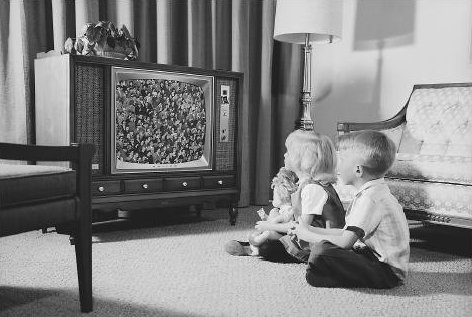University of Otago researchers have discovered that increased exposure time either to television or computer screens amongst teenagers is linked with poorer relationships with their parents and peers.
 On the other hand, teenagers who spent more time doing their homework or reading had higher levels of attachment to their parents.
On the other hand, teenagers who spent more time doing their homework or reading had higher levels of attachment to their parents.
Published in the Archives of Pediatrics & Adolescent Medicine, the research was unable to discover whether screen time drove poorer relationships or vice versa, but noted that the effect was significant: the risk for having a low attachment to their parents increased by 4% for every hour the teens spent in front of the television, and 5% for every hour spent playing on a console/computer.
Overall, more time spent in front of the TV was linked with lower attachment to both peers and parents: every additional hour increased the risk of low attachment by 24% and 13%, respectively.
The SMC is gathering comment from local experts on the issue, with the first comments below. Further comments will be released on the SMC website.
The paper is available to access in the SMC Resource Library.
Dr, Fran Vertue, lecturer, Department of Psychology, University of Canterbury and practicing clinical psychologist comments:
“From the material supplied to me, it seems that the authors propose a causal relationship between television or computer time and relationships, exploring “how screen time may affect the quality of relationships with family and friends”. They also recommend monitoring of “the effect that these technologies have on social development and psychological and physical well-being among adolescents”. Causally speaking, these authors suggest that screen time affects personal relationships in a detrimental way. Given that the authors simply report a relationship (or correlation) between two variables (time spent in front of a screen and attachment to others), there is not enough justification to claim a causal relationship between them.
“In addition, it is clearly not simply the amount of time spent away from parents or friends that is associated with poor attachment. The attachment relationships of children who spent lots of time doing homework or reading did not seem to suffer. It may be that the poor relationship with parents in the TV watchers is mediated or moderated by the parents’
disapproval at excessive time in front of a television or computer, rather than the time itself. I could imagine that the more time the child spends in front of a machine, the higher the parents’ disapproval, and more potential for conflict. Conversely, when adolescents were doing things that parents would approve of (e.g. doing homework or reading), their relationships didn’t seem to suffer. It is also well known that adolescents’ relationships with their parents are normatively conflictual, as it is a major developmental task of adolescence to separate from the family of origin in preparation for leaving home, and this task involves conflict to some extent. This also need to be taken into account in any study of adolescents and their relationships with their parents.”
Lisa Cohen, Auckland-based independent clinical psychologist, comments:
“The immediate gratification technologies are indicating a decrease in the ability of adolescents and those people in their twenties to engage in direct verbal communication not only with their peers but also with those in authority. Entire generations are finding it easier to communicate through some form of technology, thus second hand. This distances them from people and has the potential for some to lose contact or have a decreased grip on reality which can lead to disastrous consequences. Suicides being the ultimate example of distress and detachment from people who had they known what was happening may have been able to intervene.
“Research shows that attachment to parents and peers is least likely to be decreased when adolescents are using technology that is learning based. Can we therefore say that the circumstances under which adolescents engage in television watching, computer/internet /cell phone usages will directly impact upon the degree of detachment from parents and peers? If they engage in these activities in the presence of others then they are likely to also remain attached to other people whilst having available constant reality checks. In these situations adolescents are less able to create their own world.
“In summary, the short term consequences of screen time and attachment to parents and peers are a less articulate population who may experience differing degrees of direct person to person communication. In the longer term and dependent on the person’s environment and personality we will continue to see and may have an increase in bullying, suicides and homicides due to the adolescent’s withdrawal from human interaction and reality.”